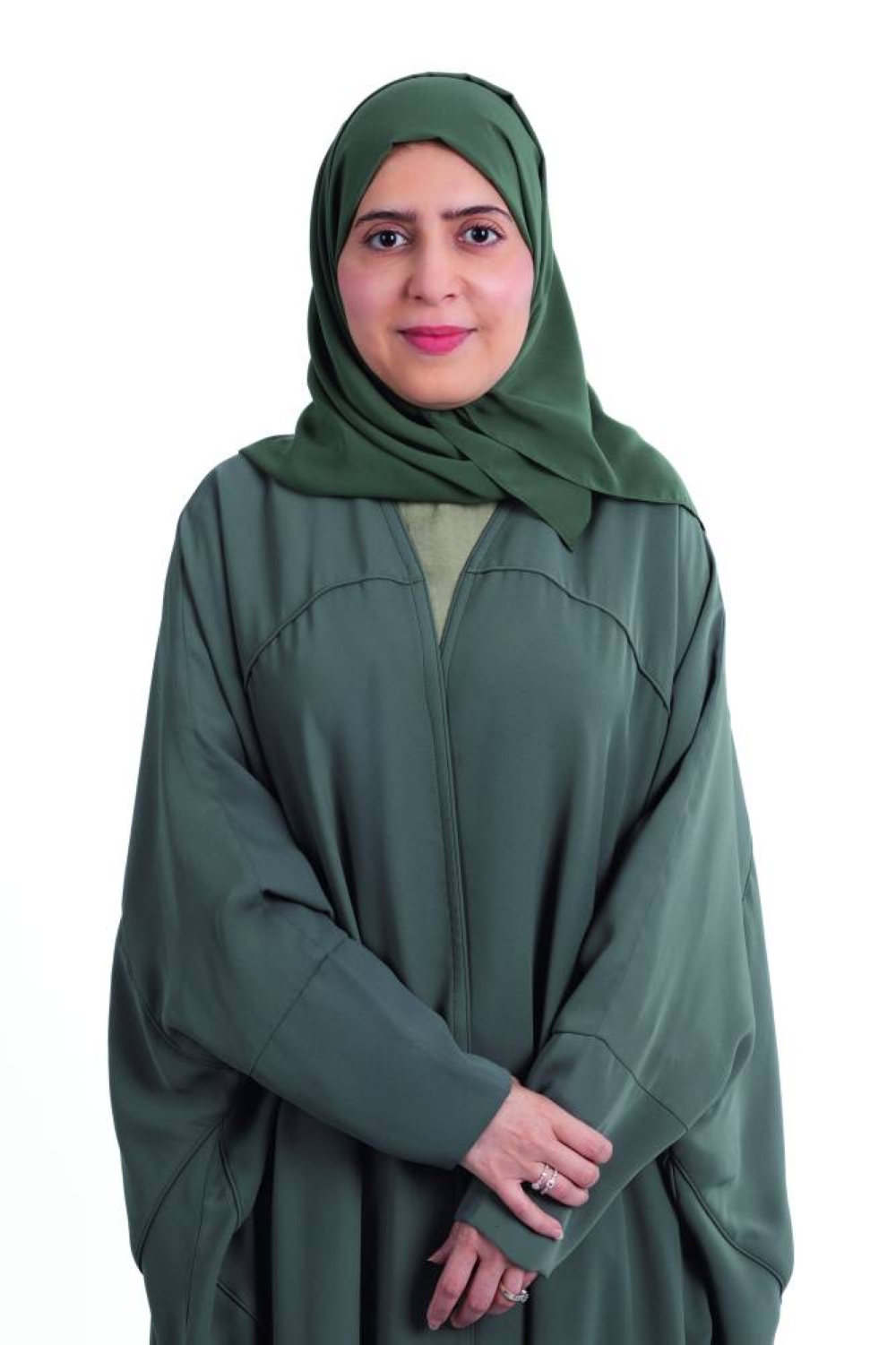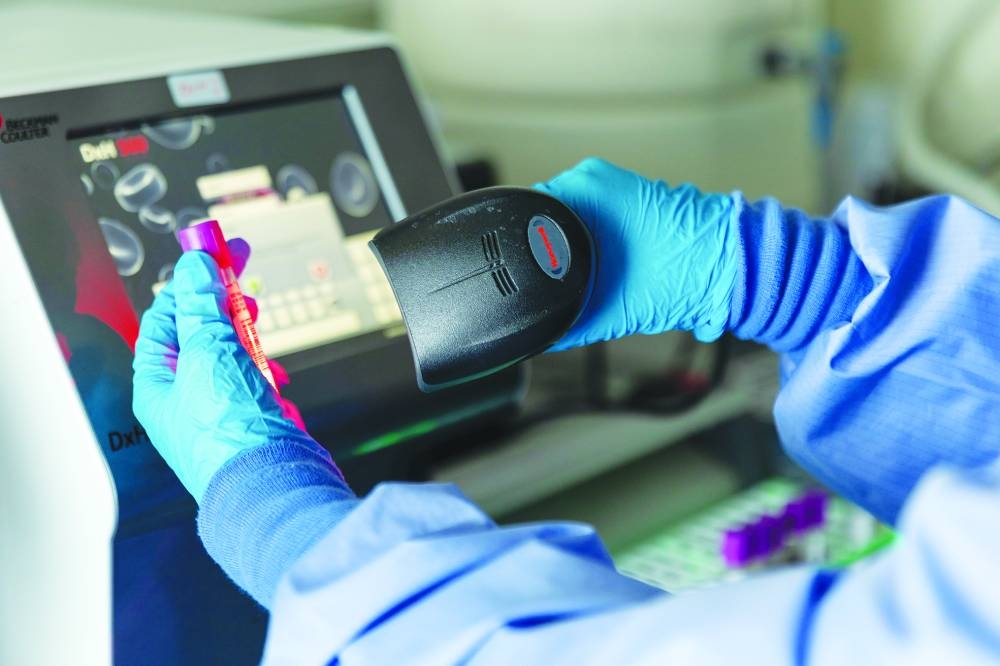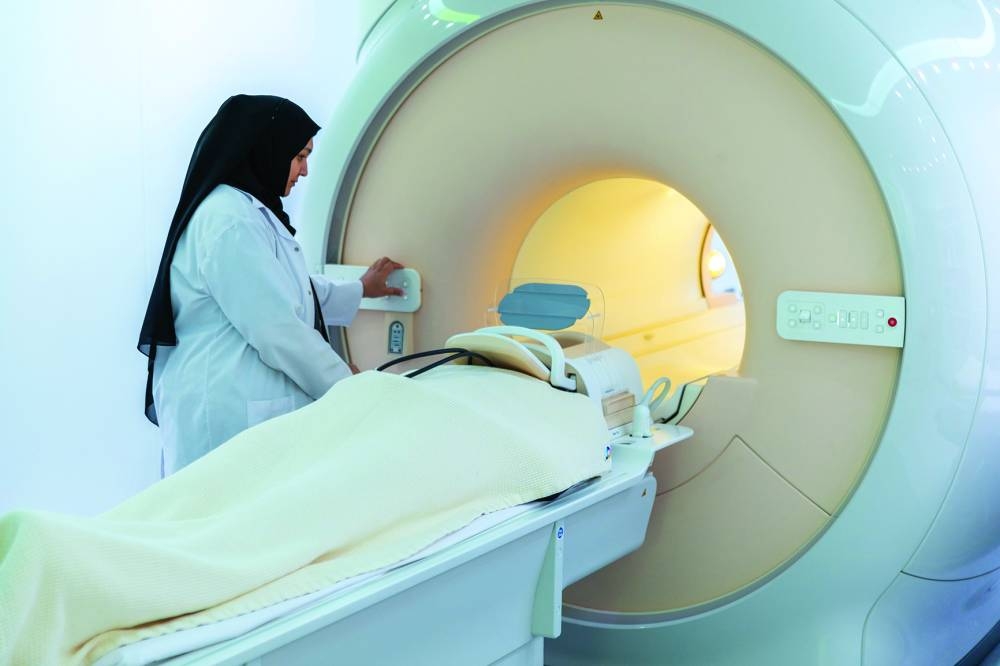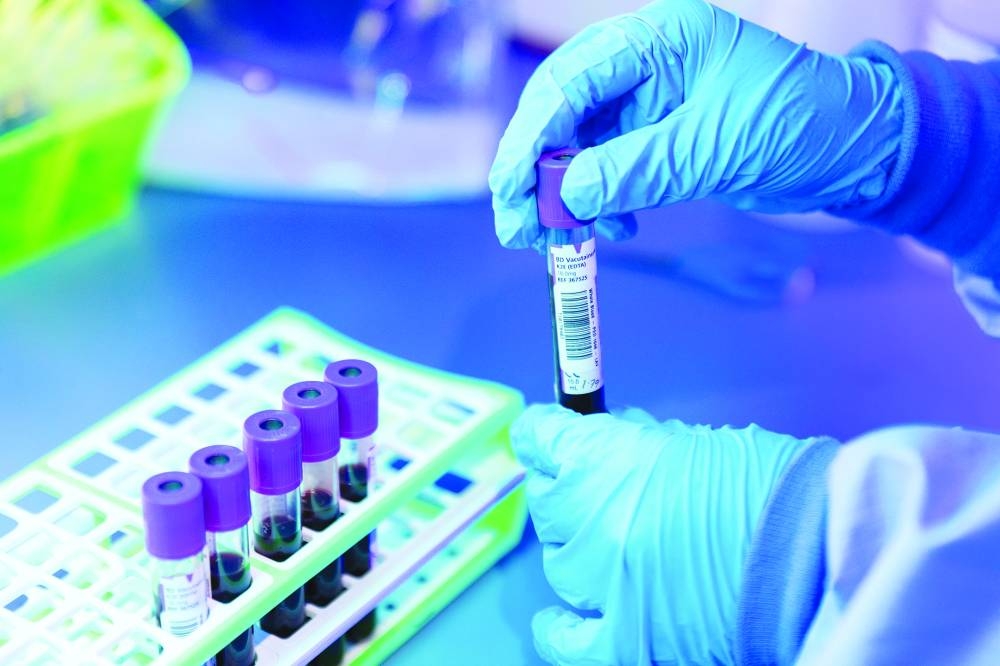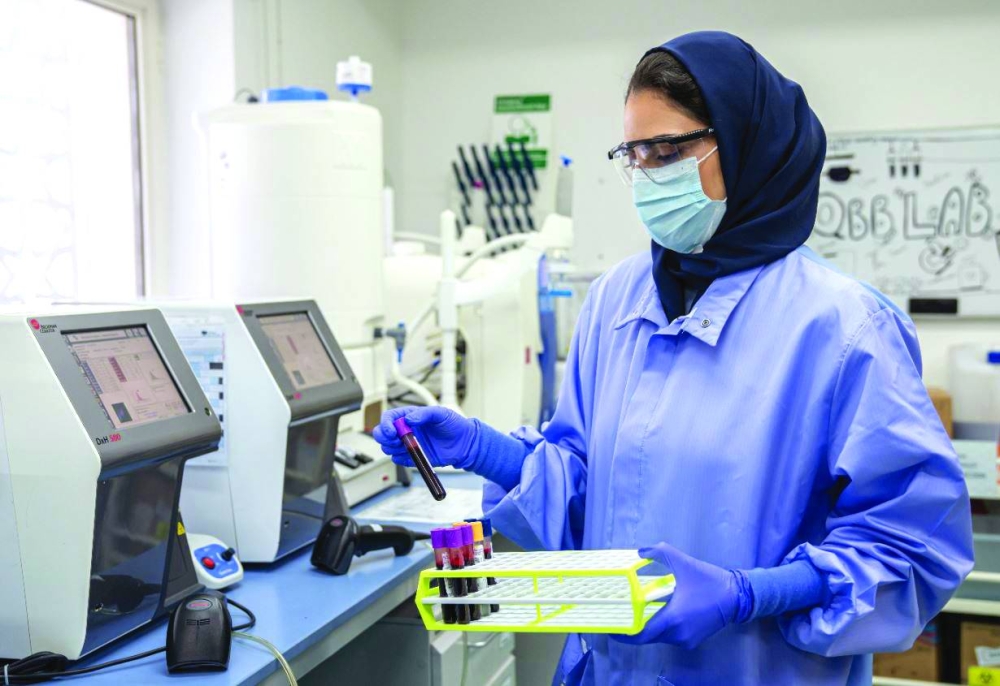Precision medicine is an approach to medical treatment that considers the individual differences in people’s genes, environments, and lifestyles. This approach allows for more personalised and effective medical treatments, as it considers the unique characteristics of each patient’s cancer rather than treating all patients with the same therapy.
In an interview with Gulf Times, Dr Fatima M Qafoud, Acting Director at Qatar Biobank, pointed out the importance of early testing and precision health in the treatment of breast cancer.
Q. What are some common misconceptions about breast cancer that you encounter in your work?
A. One of the most common misconceptions is that breast cancer only affects older women or those with a family history of the disease. In reality, most women diagnosed with breast cancer have no family history, and breast cancer can affect younger women and men as well. Another misconception is the belief that if there are no symptoms, screening isn’t necessary. Many early-stage breast cancers don’t present symptoms, which is why regular screening is critical for early detection.
Q. What are the recommended guidelines for breast cancer screening, and why is early testing crucial?
A. In Qatar, the national Get Screened for Breast Cancer programme targets women aged 45 to 69, recommending mammograms every three years for those at average risk. Early testing is crucial because it allows us to detect breast cancer at a much earlier stage, often before physical symptoms develop. This early detection dramatically increases the likelihood of successful treatment, as breast cancer is more treatable when localised.
The aim of the programme is to reduce breast cancer mortality in Qatar by identifying cases sooner and offering timely interventions.
Q. Can you explain what precision health means and how it applies to breast cancer screening and treatment?
A. Precision health is an individualised approach to healthcare that integrates a person’s genetic profile, lifestyle, and environmental factors to guide prevention, screening, and treatment strategies. In breast cancer, this approach is particularly powerful, as it allows us to identify genetic markers such as BRCA1 and BRCA2 mutations, which significantly increase breast cancer risk. Beyond genetics, precision health enables the identification of population-specific biomarkers or treatment targets that are prevalent in certain ethnic groups, such as those found in Qatar’s population.
"Most women diagnosed with breast cancer have no family history, and breast cancer can affect younger women and men as well"
At Qatar Precision Health Institute, we support research to discover unique biomarkers and risk factors specific to women in Qatar and the broader Middle Eastern region related to breast cancer. This includes providing high quality data and biological samples to our researchers to enhance our understanding on how genetic, environmental and lifestyle factors contribute to breast cancer risk. By identifying these factors, we can develop evidence-based prevention programmes, enhance early detection, and develop personalised treatment strategies that are more effective for the local population. For example exploring the influence of vitamin D deficiency, which is prevalent in Qatar, and how it may interact with breast cancer risk and outcomes in our population.
This targeted approach helps us not only identify high-risk individuals for earlier screening but also customise treatment plans based on their specific biological makeup and overall health, leading to better outcomes and fewer side effects.
Q. How does precision health improve early detection rates for breast cancer?
A. Precision health improves early detection rates for breast cancer by leveraging advanced genetic screening and biomarker analysis to identify individuals at higher risk. Women with a genetic predisposition to breast cancer can be screened more frequently or begin screening at an earlier age, ensuring cancers are detected before they progress. Technologies such as AI-enhanced imaging also play a crucial role, identifying subtle abnormalities in mammograms earlier than traditional methods.
This precision health process, where genetic susceptibility is identified at an early preclinical stage, to the implementation of precision prevention and precision medicine. Through precision prevention, we can tailor screening protocols to those at higher risk, while precision medicine enables more personalised treatments once cancers are detected. Together, these advances enhance early detection, leading to better survival rates and improved patient outcomes."In Qatar, the national Get Screened for Breast Cancer programme targets women aged 45 to 69, recommending mammograms every three years for those at average risk"
Q. What specific initiatives or research projects are currently underway at Qatar Foundation related to breast cancer?
A. Qatar Foundation (QF) is deeply committed to translating groundbreaking research into real-world clinical outcomes, especially in breast cancer. One of the key initiatives we’re proud of is the collaboration between QF researchers at Qatar Computing Research Institute (QCRI) and Weill Cornell Medicine-Qatar, using the extensive QPHI-Qatar Biobank population cohort data to better understand the landscape of cancer in Qatar. This collaborative research has resulted in significant findings published in The Lancet, one of the world’s leading medical journals.
The Qatar Precision Health Institute (QPHI) has played a pivotal role in disseminating these findings, particularly in identifying critical breast cancer genes within the local population. This work has created a pipeline that connects research directly to clinical practice, with QPHI working alongside Hamad Medical Corporation’s Cancer Hospital. A prime example of this impact is the establishment of the Breast Cancer Family High-Risk Clinic, where individuals with a higher genetic predisposition to breast cancer can receive personalised care and screening.
And this is just the beginning. Numerous other initiatives are already in the pipeline, aimed at further advancing precision health and breast cancer care in Qatar. By leveraging QF’s research ecosystem, we are continuing to build on our successes, with a clear focus on improving patient outcomes and transforming healthcare in the region.
Q. How is Qatar Foundation collaborating with local or international organisations to enhance breast cancer awareness and research?
A. Qatar Foundation (QF) has created a robust ecosystem across the country, designed to spearhead precision health initiatives with a stable infrastructure that supports both research and clinical applications. This nationwide system allows QF to effectively implement large-scale health programmes with the support local stakeholders like Ministry of Public Health (MoPH), Sidra, Hamad Medical Corp (HMC), the Primary Health Care Corp (PHCC) and others.
On a global level, QF is committed to enhancing the representation of Qatar’s population in international precision health efforts by actively participating in global consortia. These collaborations allow Qatar to contribute to and benefit from the latest advancements in precision health, ensuring that the unique genetic and environmental factors of its population are well represented in global research.
In addition to these efforts, Qatar Foundation recently hosted a breast cancer awareness event specifically for female contractors, reflecting its commitment to raising awareness across all sectors of society. The event featured educational talks, information booths, and medical consultations, giving attendees the opportunity to learn more about breast cancer and the importance of maintaining a healthy lifestyle. This initiative is part of QF’s broader mission to not only foster cutting-edge research but also to ensure that critical health information reaches all members of the community."One of the key initiatives we’re proud of is the collaboration between QF researchers at QCRI and Weill Cornell Medicine-Qatar, using the extensive QPHI-Qatar Biobank population cohort data to better understand the landscape of cancer in Qatar"
Q. What key messages should the public understand about breast cancer and the importance of early intervention?
A. The key message is simple: early detection saves lives. Regular mammograms, particularly for women in the target age group of 45 to 69, can detect breast cancer long before symptoms appear. The national Get Screened for Breast Cancer program ensures that asymptomatic women have access to routine screenings every three years. Early intervention not only increases the chances of successful treatment but also significantly reduces the need for aggressive treatments. It's crucial for everyone, regardless of family history, to remain vigilant and proactive about their health.
Q. What advancements in precision health do you foresee impacting breast cancer outcomes in the coming years?
A. In the coming years, advancements in genomic testing and personalised treatment approaches will continue to transform breast cancer care. AI-powered tools will improve the accuracy of mammograms and other imaging technologies, allowing us to detect cancer even earlier. In addition, immunotherapies and targeted therapies based on an individual's genetic profile will become more widespread, leading to better treatment outcomes and fewer side effects. These innovations will enable us to detect, prevent, and treat breast cancer more effectively than ever before.
Q. Can you share a success story or a significant impact you’ve witnessed through your work?
A. One particularly impactful success story comes from our Qatar Biobank cohort. A woman participating in the cohort had a genetic marker associated with breast cancer identified through our precision health initiatives. As a result, she and her family were invited to the Breast Cancer Family High-Risk Clinic, where they received specialised screening and care. During this process, her teenage sister — who otherwise would not have been identified as high risk — was screened, and an early-stage breast cancer was detected.
Thanks to early intervention, her sister received timely treatment, and the family now benefits from ongoing monitoring and support. This story is a powerful example of how precision health and early detection can make a life-saving difference, not just for the individual but for entire families. Had this family not participated in the Qatar Biobank cohort, the teenage sister's cancer might not have been caught until much later, potentially with more severe outcomes.
It truly demonstrates the ripple effect of these initiatives, extending the benefits of early detection beyond just the individual to the larger community.
QF launched several initiatives to emphasise the need for regional perspectives on global health and the importance of translating research into solutions with real-world impact.
The World Innovation Summit for Health (WISH), is an initiative of Qatar Foundation, will host its seventh edition of WISH Summit in Doha on 13 and 14 November 2024.
Over two days, more than 3,000 health policymakers, innovators, entrepreneurs, researchers, and practitioners will convene at Qatar National Convention Centre (QNCC) to look for innovative solutions to some of the world’s most significant health challenges.
WISH will issue a cancer report highlighting cost-effective interventions for women’s cancers in the Eastern Mediterranean Region.

